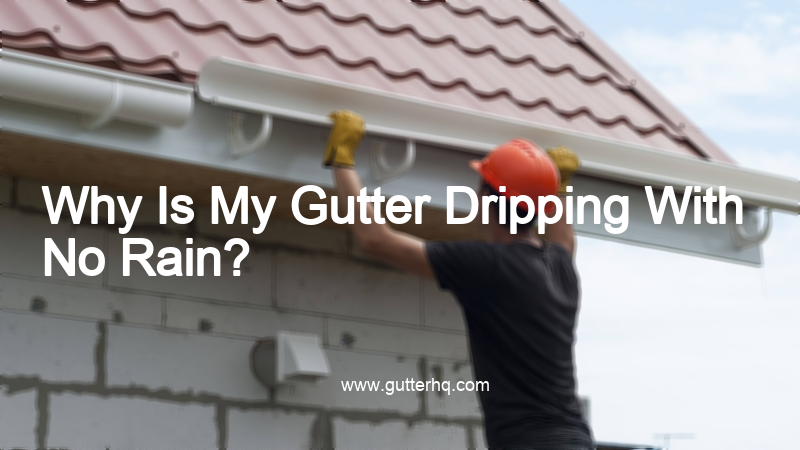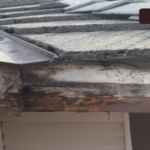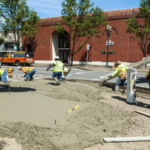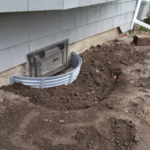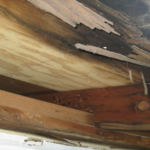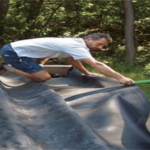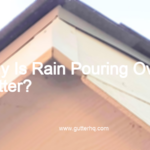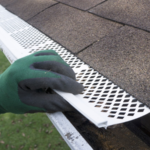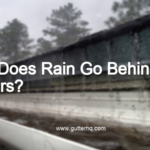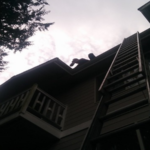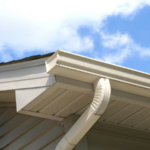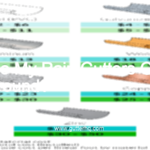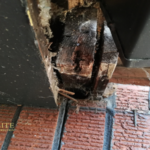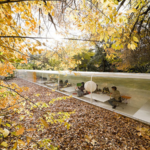Your gutters could be dripping for a variety of reasons, but the most common reason is that they are blocked with debris. Leaves, twigs, and other organic matter can build up in your gutters and cause them to clog. When this happens, water is no longer able to flow freely through the gutters and will start to pool in them. Eventually, this water will start to overflow and drip down the sides of your house. If you suspect that your gutters are blocked, you should clean them out as soon as possible to prevent any further damage.
How do I stop my gutters from dripping?
If your gutters are dripping, it is likely because they are not properly pitched or they are blocked with debris. To stop your gutters from dripping, you will need to clean them out and make sure they are pitched correctly.
To clean your gutters, first remove any debris that is blocking them. You can do this by using a garden hose to flush the gutters, or by using a small brush or garden trowel to remove the debris by hand. Once the gutters are clear, check to see that they are pitched correctly. The gutters should be pitched so that they slope slightly towards the downspout.
If your gutters are still dripping after you have cleaned them and checked the pitch, it is possible that there is a problem with the gutters themselves. In this case, you may need to replace the gutters or have them repaired by a professional.
Is it normal for water to drip from gutters?
It is not uncommon for water to drip from gutters, especially during periods of heavy rain or melting snow. While this may seem like a cause for concern, it is typically not indicative of a serious problem. However, if the dripping is accompanied by leaks or other signs of damage, it is important to have the gutters inspected by a professional.
Why is my gutter leaking but not clogged?
One reason your gutter may be leaking but not clogged is that the seals between the sections of gutter may be failing. If the seals are not sealing properly, then water can leak through even if the gutter itself is not clogged. Another reason for a leaking gutter is that the gutters may be sagging. If the gutters are sagging, then the water may not be draining properly and may be leaking out of the gutters. Finally, if there is any damage to the gutters, such as holes or cracks, then water can leak through those as well.
What is dripping from the bottom of my gutters?
The most likely explanation for water dripping from the bottom of your gutters is that the gutters are overflowing. This can happen for a number of reasons, such as leaves and debris clogging the gutters, or heavy rainfalls. If the gutters are overflowing, it is important to clear them out as soon as possible to prevent water damage to your home.
Why is there water in my gutters?
Water in your gutters is most likely due to one of three things: a recent rainfall, melting snow, or condensation.
If you live in an area that experiences a lot of rainfall, then it’s likely that the water in your gutters is from rain. As the rain falls, it runs off of your roof and into your gutters. If your gutters aren’t properly angled or if there are any leaks, then the water can end up pooling in your gutters instead of flowing through and out.
If you live in an area with a lot of snow, then the water in your gutters is most likely due to melting snow. As the snow on your roof melts, it runs down into your gutters. If your gutters are clogged, the water can’t flow through and will start to pool, causing the gutters to overflow.
The third possibility is that the water in your gutters is due to condensation. This can happen if the temperature outside is colder than the temperature inside your home. As the warm air from your home hits the cold gutters, it can cause the water to condense and form droplets.
How much should gutters drip?
There is no definitive answer to this question as it depends on a number of factors, including the type of gutters, the climate, and the amount of rainfall. However, as a general guideline, gutters should drip a little bit after a rainfall in order to ensure that they are functioning properly. If gutters are not dripping at all, this could indicate that they are blocked and need to be cleaned out.
Why is water dripping from the side of my house?
There are a few potential reasons for why water might be dripping from the side of your house. One possibility is that there is a leak in one of the pipes that brings water into your home. If this is the case, you’ll want to call a plumber to come and fix the issue as soon as possible. Another possibility is that there is a leak in the roof. This is especially likely if you notice water dripping during or after a rainstorm. If you think this might be the case, you should call a roofer to come and take a look. Finally, it’s also possible that the water dripping from your house is actually just condensation. This can happen if the air outside is very cold and the air inside is very warm. If you think this is what’s going on, you can try opening a window or turning on a fan to help circulate the air and reduce the amount of condensation.
How do I know if my underground downspout is clogged?
If your underground downspout is clogged, you may notice that water is not draining from your gutters as quickly as it used to. Additionally, you may see water pooling around your foundation or in your yard near the downspout. If you suspect that your underground downspout is clogged, you can try to clear the blockage yourself or you can contact a professional to help you.
How do you tell if gutters are working properly?
- Check the gutters for any leaves, twigs, or other debris. If you see any debris, this means that the gutters are not doing their job of filtering out these items.
- Look for any gaps or holes in the gutters. These gaps can allow water to leak through, which can cause water damage to your home.
- Check the downspouts to see if they are clear. If the downspouts are clogged, this can cause water to back up in the gutters and lead to overflowing.
- Inspect the gutters for any rust or corrosion. This can weaken the gutters and cause them to break or collapse.
- Look for any cracks or leaks in the gutters. These can allow water to seep through and cause damage to your home.
If you notice any of these problems with your gutters, it’s important to have them repaired as soon as possible. Ignoring these problems can lead to serious water damage to your home.
Final Word
There are a few possible reasons for why your gutter is dripping with no rain. It could be that your gutters are clogged with debris, causing the water to back up and drip down the sides. Another possibility is that your gutters are installed incorrectly and are not pitched correctly, causing the water to pool in certain areas and drip down. Whatever the reason may be, it’s important to get it fixed as soon as possible to avoid any further damage to your home.
